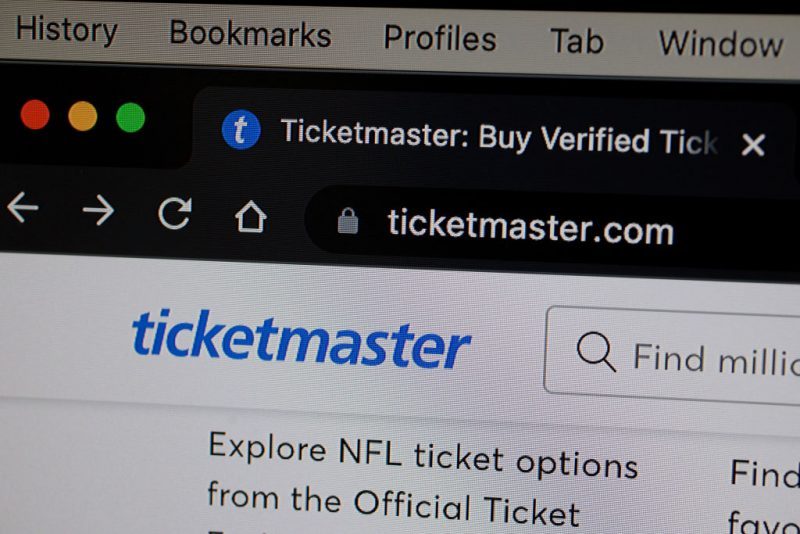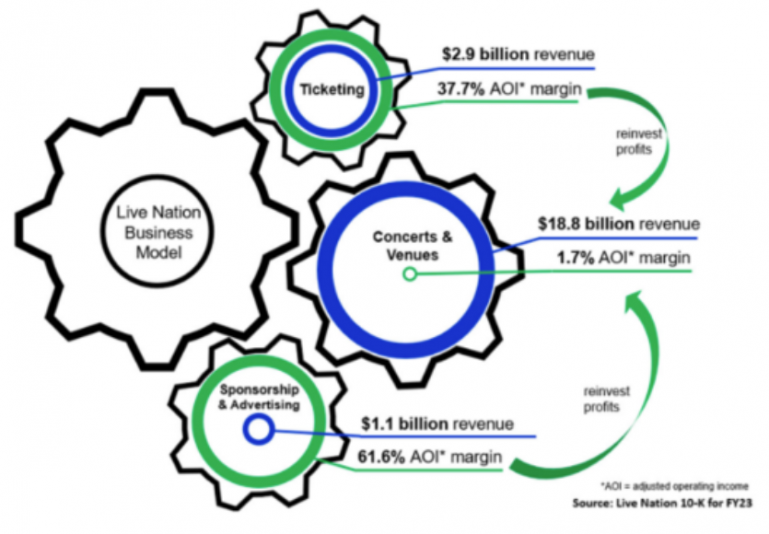
OAN’s Brooke Mallory
Thursday, May 23, 2024
UPDATE 10:56 a.m.: The Department of Justice has finally filed its 128-page civil lawsuit involving both Ticketmaster and Live Nation.
“We allege that Live Nation has illegally monopolized markets across the live concert industry in the United States for far too long. It is time to break it up. The American people are ready for it,” said Attorney General Merrick Garland.
The entertainment giant was accused in a federal lawsuit filed with the support of 29 states and the District of Columbia for stifling innovation in the sector by creating a “self-reinforcing ‘flywheel,'” whereby it leveraged its numerous business components to gather all concert-related revenues.
11:00 a.m.: The complaint claims that this flywheel enables the business to collect fees to clients, then utilize that revenue to draw in big names and sign them to lengthier contracts so that more tickets can be sold.

“Live Nation’s monopoly, and the anticompetitive conduct that protects and maintains its monopoly, strikes a chord precisely because the industry at stake is one that has for generations inspired, entertained, and challenged Americans,” the complaint stated. “Conduct that subverts competition here not only harms the structure of the live music industry and the countless people that work in that industry, but also damages the foundation of creative expression and art that lies at the heart of our personal, social, and political lives.”
________________________________________________________________________________________________________________
Original April 17th article:
As early as next month, the Department of Justice intends to launch a significant antitrust action against Live Nation, the parent company of Ticketmaster, according to a report.
The Wall Street Journal first published the story on Monday and cited individuals familiar with the situation. The lawsuit will accuse the nation’s largest concert producer of using its position of dominance to undercut competitors.
However, the site refrained from reporting on the precise accusations that will be made in the lawsuit.
The New York Times previously reported that in 2022, when Taylor Swift fans were attempting to purchase pre-sale tickets for her “Eras Tour,” Ticketmaster crashed, prompting the DOJ to launch an investigation into whether Live Nation maintains a monopoly on the industry.
In 2010, when the Justice Department approved the merger of Live Nation and Ticketmaster, officials pledged to increase competition in the ticketing industry.
The concert promoter Live Nation, which at the time owned or operated around 135 significant concert venues worldwide, was accused by critics at the time of pushing these venues into solely using its new ticketing arm, which would increase ticket prices for customers rather than decrease them, according to the Journal.
Later, antitrust authorities revised the 2010 settlement to include an anti-retaliation clause that would subject Live Nation to a $1 million penalty each time it threatened to withhold shows if a venue sold tickets through a company other than Ticketmaster. The 2010 deal’s terms were originally scheduled to expire in 2019, but they were extended to 2025.
“Ticketmaster has more competition today than it has ever had, and the deal terms with venues show it has nothing close to monopoly power,” a Ticketmaster spokesperson told reporters.
Live Nation’s head of corporate affairs, Dan Wall, refuted monopoly claims by stating that “teams and artists set the prices for tickets” in an essay posted on the company website last month. The only thing Ticketmaster and other “primary ticketing companies” do, according to him, is offer “the technology and services that venues need to manage and market shows, sell tickets, and validate tickets for entry.”
Stay informed! Receive breaking news blasts directly to your inbox for free. Subscribe here. https://www.oann.com/alerts

